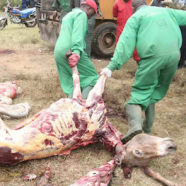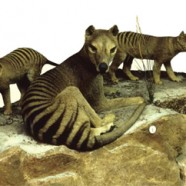To save the donkeys from the Chinese predators
A tremendous boom in donkey skin exports towards China from northern to southern Africa has been noticed over the last year. The countries hit the most are Egypt, Burkina Faso, Mali, Niger, Kenya, Tanzania, Botswana and South Africa. In Egypt, one donkey was sold 17 € two years ago and 170 € today.
Burkina Faso is the symbol of this sudden persecution.
– 1st quarter 2015: 1000 skins exported.
– 4th quarter 2015: 18.000 skins.
– 1st half of the year 2016: 65.000 skins.
Something is moving in wood
Press release n°3
CITES – Convention on International Trade in Endangered Species of Wild Fauna and Flora
17th Conference of the Parties. Johannesburg – South Africa
September 24 to October 5, 2016
Good news for tropical forests. Three important changes.
1- Dalbergia
It was feared that China would oppose. Trade in Dalbergia, commonly known as rosewood or red wood (“hongmu” in Chinese) had been booming in the world’s biggest importer. 10,000 producers of furniture and decorative objects are in activity in China, transforming “hongmu”. The industry employs one million people and generates 7 billion US$ in revenue per year. The Dalbegia odorifera, the most prestigious species, is sold at present for 1.5 million US$ per m3. Ordinary species are sold between 10,000 and 40,000 US$ per m3. After China, the United States and Europe are the main importers.
The chameleon WWF
Press release n°2
CITES – Convention on International Trade in Endangered Species of Wild Fauna and Flora
17th Conference of the Parties. Johannesburg – South Africa
September 24 to October 5, 2016
– With a flurry of mailings and pathetic declarations, the WWF floods the world with calls for help to save elephants. The surface speech is in red and black tones as it should, emotionally correct, touching its members and supporters.
– Behind the scenes of ministries and conventions, the WWF has been campaigning for 26 years so that the legal ivory trade remains ajar. The WWF has its foot in the door and does not pull out. To the bloodshed and cruelty of poaching, the WWF wants to add the poison of legal trade and opposes to the return of all elephant populations in Appendix I of CITES, which would ban international ivory trade. Unfortunately, this murky speech is taken over by the majority of countries of the European Union, Belgium and Germany in the lead.
CITES has no cure for elephant poaching
Compromise and Rhetoric is killing world’s elephants
Despite the praise for the Convention on International Trade in Endangered Species of Wild Fauna and Flora on its 40th anniversary, CITES has failed to protect the elephant. African elephant populations are under siege and in decline primarily to satiate the demand for ivory in Asia. In 2011 alone, around 25,000 elephants or more were slaughtered for their ivory and the killing was even worse in 2012.
Enough is enough. Several conservation and animal welfare organizations, including the David Shepherd Wildlife Foundation (DSWF-United Kingdom), Elephant Advocacy League (United States), Environmental Investigation Agency (EIA-United Kingdom), Fondation Franz Weber (FFW-Switzerland), International Ranger Federation (Australia), Last Great Ape Organization (LAGA-Cameroon), Pro Wildlife (Germany), Robin des Bois (France), Youth for Conservation (Kenya) attending the 16th meeting of the CITES Conference of the Parties are outraged by the failure of CITES to stop the poaching of African elephants, particularly African elephants. Instead of demanding an end to the markets driving the slaughter, CITES Parties are coming up with weak compromises in a feeble attempt to stop the poaching. But China, the single country most responsible for the crisis due to its burgeoning ivory market, won’t even concede its responsibility as the main problem. Nor will CITES admit that previous decisions allowing “legal” sale of ivory to China and Japan have stimulated, not reduced, demand and directly contributed to the poaching.
Would you please revive the species?
CITES – Bangkok
Press Release # 8
Animal species are extinguished. The plenary of CITES (Convention on International Trade in Endangered Species of Wild Fauna and Flora) in Bangkok was the opportunity to bury, without ceremony, the Thylacinus cynocephalus and some other species wiped off the planet in the past century. Their family trees date back several million years. Extinctions are accelerating.
These biological disasters are not caused by any disruptions in climate, geological mutations or functional inadequacies. Mankind is the conductor of these disasters, wreaking havoc through risky manipulations or introductions and through radical exploitation of its surroundings.











